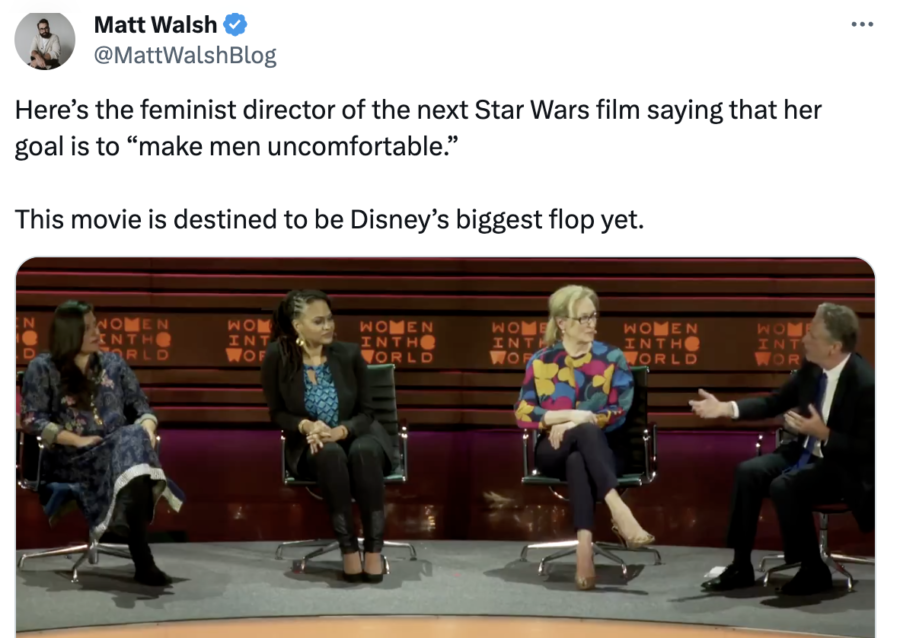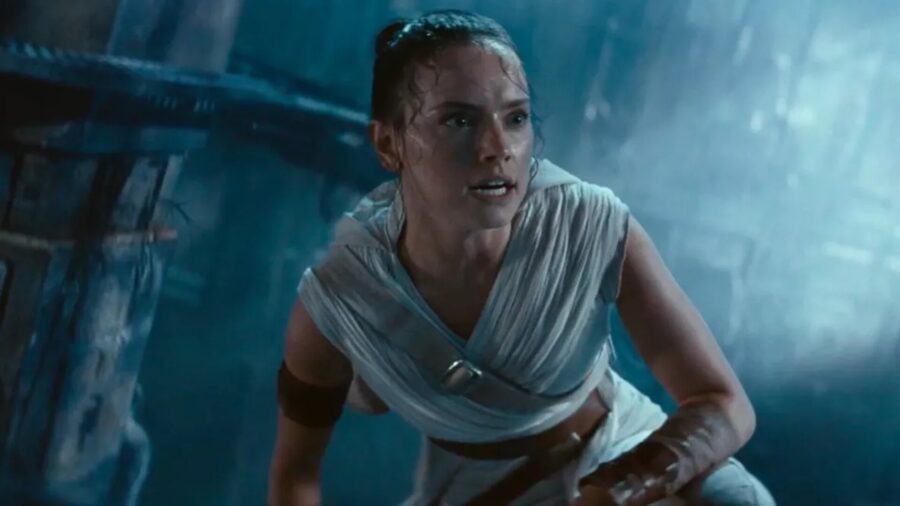Star Wars Director Says She Likes To Make Men Uncomfortable

Filmmaker Sharmeen Obaid-Chinoy, who is set to direct a new Star Wars movie, says she likes to make men uncomfortable. Although she made the comments during a 2015 panel discussion, her words have recently resurfaced on social media after political commentator Matt Walsh shared a clip of the interview on X.
Sharmeen Obaid-Chinoy’s Interview

“Here’s the feminist director of the next Star Wars film saying that her goal is to ‘make men uncomfortable.’ This movie is destined to be Disney’s biggest flop yet,” Walsh wrote alongside the video.
Walsh’s post raked in 10.2 million views, 56,000 likes, and 10,000 comments, with Texas Senator Ted Cruz adding his thoughts.
Um, Disney is announcing they don’t want any men (or boys, presumably) to go to the next Star Wars?? Have they ever actually met a Star Wars fan?” Cruz wrote.
Part Of A Broader Conversation

However, worries about Obaid-Chinoy’s remarks and their potential influence on the film may be unfounded as the filmmaker’s words were part of a broader conversation during the Women in the World Summit in New York City in 2015.
Alongside Meryl Streep and Ava DuVernay, the panel explored the marginalization of women, which had nothing to do with Star Wars. During the discussion, a segment from Obaid-Chinoy’s television series Ho Yaqeen was presented to the audience, shedding light on the mistreatment of brick kiln workers in the Punjab region of Pakistan.
Making Men Feel Uncomfortable

Moderator Jon Stewart then asked, “What is the balance of activating a force for change but also trying to permeate that patriarchy, that power structure?”
In response, Obaid-Chinoy said, “I like to make men uncomfortable. I enjoy making men uncomfortable.
“It is important to be able to look into the eyes of a man and say, ‘I am here,’ and recognize that, and recognize that I am working to bring something that makes you uncomfortable, and it should make you uncomfortable because you need to change your attitude,” the Star Wars director continued.
Star Wars’ Recent Run

Obaid-Chinoy boasts an impressive resume with two Academy Awards and seven Emmy Awards. She previously discussed her involvement in the Star Wars franchise, saying, “We’re in 2024 now, and it’s about time that we had a woman come forward to shape a story in a galaxy far, far away.”
Despite some critics and fans expressing concerns about the upcoming movie, Disney has achieved success with Star Wars releases since it acquired Lucasfilm in 2012.
The Force Awakens, The Last Jedi, The Rise of Skywalker, and Rogue One: A Star Wars Story are among the 50 highest-grossing films of all time, with The Force Awakens holding the top spot in the United States and Canada.
Feminist Influences?

Meanwhile, the idea that feminism is ruining movies is a perspective held by some who argue that increased attention to gender equality and feminist themes has shifted the focus away from traditional storytelling. It’s leading to what they believe is a decline in quality. Some even argue that it has led to an environment of political correctness in filmmaking that restricts creative freedom.
Most recently, critics expressed concerns about established franchises like Star Wars being affected by feminist influences, suggesting that the changes may alienate some fans or compromise the essence of the original work.
However, it’s important to note that the movie-going audience does not universally accept these opinions.
Positive Developments

Many argue that increased diversity, representation, and feminist perspectives in films like Star Wars are positive developments.
Supporters of feminist themes in movies often contend that it leads to a more inclusive and representative portrayal of society, providing audiences with diverse perspectives and empowering narratives.
Film is an art form that evolves with societal changes, and discussions about feminism’s impact on movies in Star Wars or the Marvel Cinematic Universe reflect ongoing debates about the role of cinema in reflecting and influencing cultural attitudes.
Ultimately, opinions are subjective and can vary based on individual beliefs and values.
Source: Twitter/ X












